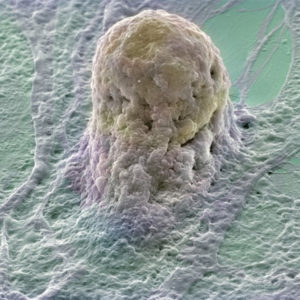Derivation and Culture of Human Induced Pluripotent Stem Cells (hiPSCs)
9–13 December 2019
Wellcome Genome Campus, UK
Hands-on training in best practices for working with human induced pluripotent stem cells (hiPSCs)
Summary
Established in 2015 in collaboration with the UK Stem Cell Bank and Wellcome Sanger Institute Cellular Generation and Phenotyping (CGaP) core facility, this 5-day course includes practical, laboratory-based training sessions, lectures and discussions covering current theory and best practices with regard to derivation, culture and characterisation of human induced pluripotent stem cells (hiPSCs).
Target Audience
The course is aimed at research scientists and clinicians/healthcare professionals engaged in relevant research.involving hiPSCs.
Learning Outcomes
After attending this course, participants can expect to be able to:
- Recognise key principles of Good Cell Culture Practice (GCCP) and aseptic processing including the role of antibiotics
Assess and identify key advantages, disadvantages and critical elements of different approaches to somatic cell reprogramming - Assess and identify undifferentiated, fully reprogrammed iPSCs compared to partially reprogrammed iPSC colonies
- Recognise critical aspects for successful preservation and storage
- Evaluate the recovery of iPSCs and identify viable cells
- Identify undifferentiated morphology of confluent iPSCs ready for passaging
- Identify and troubleshoot critical aspects in the passaging and maintenance of undifferentiated iPSCs
- Recognise the importance of core QC and potential consequences of failing to carry it out
- Evaluate different capabilities of each method of determining potential pluripotency
- Understand the basic principles of flow cytometry and its application to iPSC
Programme
The programme will include lectures, discussions and practical laboratory sessions covering the following topics:
- Good Cell Culture Practice (GCCP) and aseptic processing
- Approaches for reprogramming of somatic cells (reprogramming methodologies – virus and episomal; somatic cell types [skin fibroblasts and PBMCs])
- Lectures on application of iPSC cells in disease modelling, genome editing and differentiation
- Cryopreservation and recovery
- Passaging
- Quality control (identity, karyology, mycoplasma, sterility, cell markers)
- Assessing pluripotency and differentiation of iPSC
Instructors and speakers
Course instructors
Minal Patel Cellular Generation and Phenotyping, Wellcome Sanger Institute, UK
Glyn Stacey International Stem Cell Banking Initiative, UK
Orla O’Shea UK Stem Cell Bank, The National Institute for Biological Standards and Control (NIBSC), UK
Adam Hunter Cellular Generation and Phenotyping, Wellcome Sanger Institute, UK
Guest Speakers
Andrew Bassett Head of Research (Cellular Operations), Wellcome Sanger Institute, UK
Lyn Healy The Francis Crick Institute, UK
Milena Bellin Leiden University Medical Center, The Netherlands
How to apply
Prerequisites
Applicants should be research scientists or clinicians/healthcare professionals engaged in relevant research.involving hiPSCs.
How to Apply
Click on the Apply buton above to begin the application process. Places are limited and will be awarded on merit. If you have any problems with the online application process, please contact us.
Please note: Applications must be supported by a recommendation from a scientific or clinical sponsor (e.g. supervisor, line manager or head of department). A request for a supporting statement will be sent to your nominated sponsor automatically during the application process. Applicants must ensure that their sponsor provides this supporting statement by the application deadline. Applications without a supporting statement cannot be considered.
Travel visas
Successful applicants will be provided with a support letter for their visa application, if required.
Please visit the following websites for further information on visiting the UK:
Cost
| Cost | Accommodation / meals | |
| *Course fee | £600 | This is a residential course and the fee includes all accommodation and meals. |
*The course fee is subsidised by Wellcome Genome Campus Advanced Courses and Scientific Conferences and applies to non-commercial applicants. Please contact us for the commercial fee.
Bursaries
Limited bursaries are available (up to 50% reduction on the course fee) and are awarded on merit. If you would like to apply for a bursary, please complete the bursary section of the online application form.
Where there are many bursary applications, the selection committee may issue smaller amounts.
Bursaries can be applied for as part of the course application form. Applicants will be notified of a bursary award along with their place on the course, usually within one month of the application deadline. The decision of the selection committee is final.
Please note that both the applicant and sponsor are required to provide a justification for the bursary as part of the application.
Additional funding opportunities
Visit our support page for additional financial support currently available.
Accommodation services phishing scam – please be vigilant. More information.
Testimonials
Feedback from the 2018 course:
I would like to thank the organisers, course staff, and all those involved to make this a successful and unforgettable workshop that I will most likely be able to benefit greatly from. This course offered an intensive and motivating framework to develop and refine practical skills and theoretical knowledge. It was a pleasure to share this valuable experience with passionate participants from around the world.
This course was amazing. Thank you very much to all people for the organization.
Thank you for making me love science again. Your enthusiasm, energy, love for what you do, and how you are as people, scientists, and a team made me believe in what I’m doing a bit more, and love it again!
Thank you for the effort of all the instructors!
It was a useful and extraordinary experience for me. Everyone is just very nice and understanding, loved it!
I would like to thank the whole team for organizing this excellent course!
I want to thank the organisers for being so welcoming and helpful.

